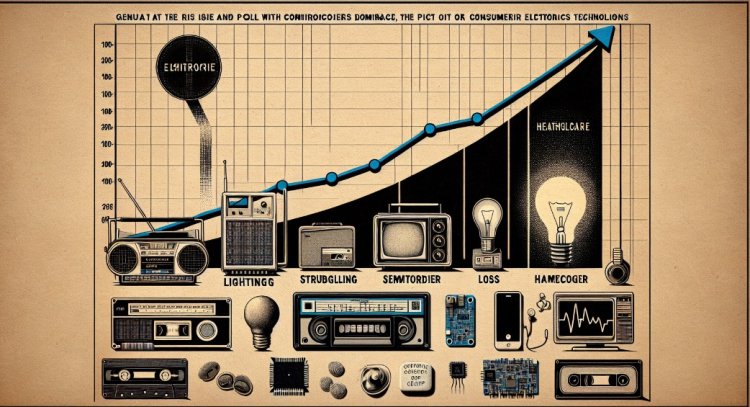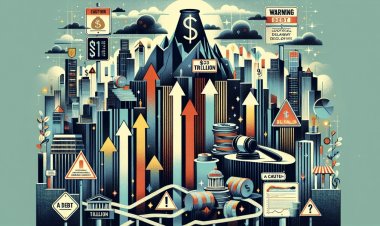The Rise and Fall of Philips: A Tale of Mismanagement and Failed Innovation
Once a global electronics giant, Philips' story is a cautionary tale of missed opportunities and failed innovation. Explore their meteoric rise and dramatic fall, from humble beginnings to a forgotten brand.

Introduction
Phillips used to be a really big and smart company that made fancy technology stuff and came up with new ideas. But now, it's not as good as it used to be and doesn't have much going on. In 2010, the person in charge of Philips said that their company was not considered a high-tech company anymore. This means that what the person said was correct and on purpose. The company decided to stop focusing on making electronics and sold their different parts of the business.
From lighting to consumer products
Phillips started doing really well in the business of making lights. They became the biggest maker of lights in the whole world by making really good lights and telling lots of people about them. But when LED technology came along, it changed how things worked in the lighting industry. This made Phillips decide to split its lighting division into a new company called Signify.
Phillips also did a lot of important work with radios, which are devices that let people listen to music and news from far away. They started their own radio station and became the biggest seller of radios all around the world. They also made a small tape that started the big music industry we have today. Even though Phillips did well with some new things like CDs and DVDs, they had a hard time making money from them. They couldn't keep up with companies like Sony.
Consumer Electronics and Failed Innovations
Phillips tried to join the consumer electronics market by using a big group model. They did well with electric shavers, but they didn't make money with other things they tried. When they tried to make their own computers and web TVs, they didn't do very well. They didn't do well because they didn't understand what people wanted and couldn't change with the times.
Their success was made even more difficult because of the competition from companies in Asia who make similar products. On top of that, they didn't make much money from selling their products. Even though Phillips tried really hard and spent a lot of money, they couldn't do as well as the top companies in the industry, like Sony and Samsung. So, what happened was that the company slowly stopped doing electronics stuff and sold their different parts of the business.
The Semiconductor Industry
Even though many people don't know this, Phillips was one of the first people to do important work in the semiconductor industry. In 1953, they began making parts for their electronic things and became the second-biggest company that makes tiny computer pieces all around the world. But they had the same problems as in the electronics industry, like losing money on investments and not being well-run.
Phillips got rid of its semiconductor business, and that business later became NXP, a company that makes special chips and has been doing well. Also, Phillips was very important in helping to create TSMC, which is the second most valuable company that makes computer chips. They also played a big part in ASML, which is the top company that makes machines for producing computer chips.
A Focus on Healthcare Tech
Phillips changed what they were working on and started focusing on making technology for healthcare. They found that they were doing well making machines that can take pictures of the inside of your body, like MRI machines and CT scanners. This area is a good place to make money because it's growing steadily. There's not a lot of fighting over prices, and there are rules to protect businesses. Phillips is a company that focuses on health technology. But even though they see themselves this way, they still have some problems in this area. They have had to recall some of their products recently, and there might be new technologies that could cause trouble for them in the future.
Conclusion
Phillips' story is about times when they could have done something good or made something new, but they didn't do it right. The company made really cool things that nobody else had made before, but they had a hard time making those things sell well and make money. They made a lot of mistakes, couldn't keep up with what people wanted, and had a hard time competing with other companies. That's why they failed in the electronics business.
Even though they faced difficulties, Phillips played a big part in making the semiconductor industry grow. They helped create companies like NXP, TSMC, and ASML. Today, the main thing they're paying attention to is healthcare technology. But in the future, things might change because new trends and technologies could come along and shake up the industry again.



 admin
admin 










